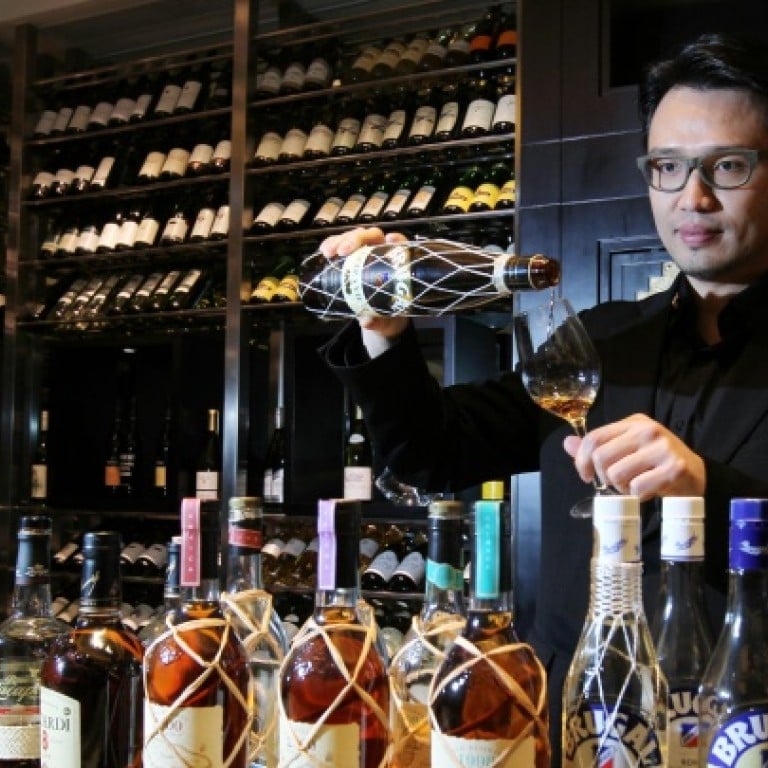Rum is increasingly enjoyed on its own as its quality is refined via distilling and ageing methods

Whether you think of it as the pirate's drink of choice or the exotic liquor known as kill-devil in Barbados, there's something about rum that imparts a heady sense of dark glamour

The spicy-sweet spirit has seen a surge in popularity of late, and producers and bars alike are responding accordingly in a way that would make Captain Jack Sparrow proud.
"In the last three years, I've noticed a growing trend in rum appreciation," says Zachary Yu, Langham Place Mongkok's resident "Wine Guy".
"The trend is a budding one, but rum brands are actively promoting their products in the industry, targeting bartenders, mixologists and buyers.
We're seeing an increase in the variety as well as the quality of rum."
Until recently, rum had often been dismissed as a mere cocktail component, lacking the prestige its whisky and cognac cousins enjoy - as a spirit to be appreciated alone without the need for other ingredients. These days, however, rum is starting to come into its own, as distillers refine their production methods and ingredient choices, creating spirits of surpassing quality.

"Master distillers in the Caribbean realised that if they were treating the rums as other producers do with whiskies and cognacs, in terms of the ageing and blending processes, they could create a refined alcohol that can be enjoyed on its own," explains Herve Leroux, director of Sino Vantage Asia, which imports and distributes plantation rums to Hong Kong and Macau. "With this evolution of the quality of rums, consumption has changed, and the rum category is now the fastest growing one in Europe and the US."
Even white rums, the type of rum normally used in cocktails, are getting an upgrade. Rum cocktails are no longer limited to daïquiris and the mojitos, but are garnering the attention of molecular mixologists, the innovative minds behind the bar who specialise in creative cocktails.
"White rum is getting attention as cocktail consumption in the Asia market gets increasingly mature and consumers get more particular," says Enrico Ho, brand advocate of The Edrington Group Hong Kong, which makes some of the world's most renowned whiskies and includes the Caribbean rum Brugal in its portfolio. "Mixologists nowadays will not just play around with vodka and gin, but more flavourful, complex spirits like rum."
